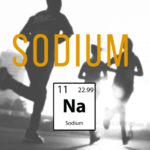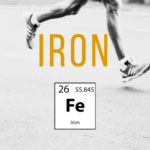In the dietetics community, BCAA supplementation is a controversial topic. That’s because most studies show that BCAA works, but either not as good or not better than a regular whey protein powder.
I was a skeptic. But I went into a rabbit hole of studies on BCAA supplementation and came out the other end with a slightly changed opinion, and I might just give it a try in my next ultra.
To learn more about protein in runners’ diet, jump to this post.
Protein and Muscle Damage during an Ultramarathon.
During an ultramarathon, your muscles get seriously damaged. The degree of damage depends on the duration of the event, the terrain, the amount of downhill runs, your previous training, and your diet within a few hours before the race.
This substantial muscle damage can manifest itself before the end of a long race, therefore decreasing your running performance. Additionally, your muscles might require weeks or even months to repair, rebuild, and return to the status from before the race, which can hinder your training and set you back.
Consuming protein together with carbohydrates directly before, during, and directly after an ultramarathon might potentially decrease muscle damage and prevent its negative consequences.

BCAA and Muscle Damage During an Ultramarathon.
To mitigate muscle damage during a single-stage ultra running event, runners should aim to consume between 5-10g of protein per hour, or 20-30g every 3 hours. However, due to gastrointestinal discomfort, this might not be feasible.
That’s where BCAA supplements, such as a liquid, a tablet, or an energy gel with added BCAA might be a useful alternative. Studies show that BCAA supplementation decreases muscle damage similarly to whey protein supplementation.
BCAA Supplementation and Central Fatigue Offset.
The second reason why you might want to consider adding BCAA to your race nutrition strategy is the central fatigue onset.
Prolonged run increases the synthesis and metabolism of 5-hydroxytryptamine in the brain, which causes fatigue and reduced motivation. 5-hydroxytryptamine is produced from tryptophan which competes with BCAA to cross the blood-brain barrier. So technically, by increasing the amount of BCAAs in blood you can decrease the amount of tryptophan getting into your brain and mitigate the accumulation of 5-hydroxytryptamine.
Studies confirm this theory. Athletes supplementing BCAA during submaximal cycle exercise performed in a glycogen-depleted showed reduced effort perception. Similarly, when well-trained cyclists exercised several hours in the heat, BCAA supplementation prolonged time to exhaustion.
BCAA for Ultramarathon – Quantity and Timing.
You can get BCAA supplements in many different forms, including, tablets, capsules, jellies, and liquid. Some brands also make BCAA-fortified energy gels which seem to be the most convenient form for an ultrarunner.
In the studies, subjects usually consumed between 9g and 16g of BCAA (valine, leucine, and isoleucine) per kg of body weight during a duration of the trials that lasted between 1-3h.
As of today, it is unclear what the optimal dose of BCAA would be for an ultramarathon event.

Final Thoughts
To date, there has been one study examining the effect of BCAA supplementation on a 100K ultramarathon performance and it showed no effect.
However, I would be cautious in making any conclusions. this study had many limitations, including a small sample and limited time. The authors also suggested that in future studies, the subjects should take a BCAA supplement for a longer time before an ultramarathon event.
BCAA supplements are inexpensive, easy to work into the nutrition strategy, have potential benefits, and are considered safe. In the spirit of aggregating marginal gains, I’d say it’s worth trying.
Have a great run!





0 Comments